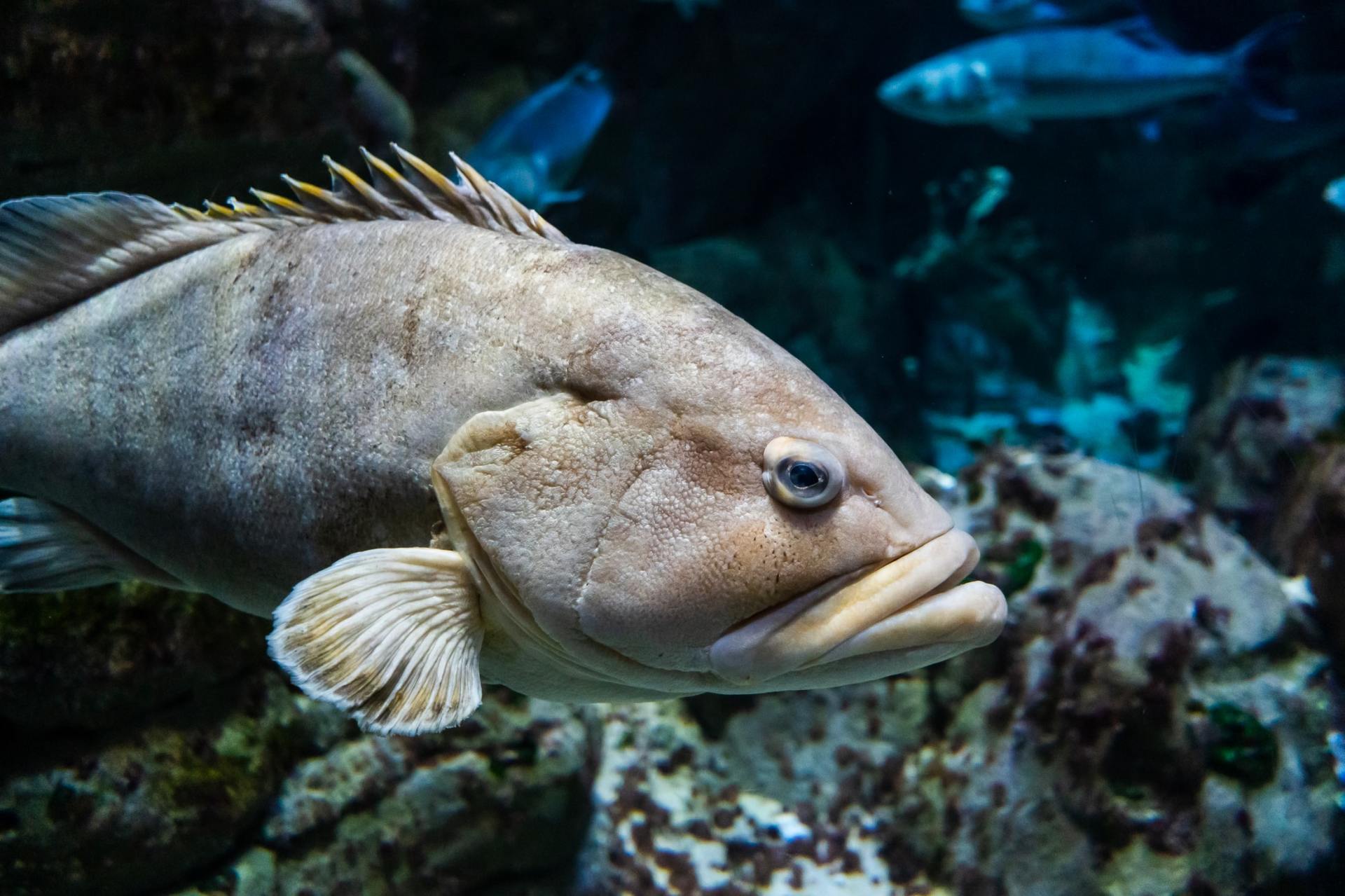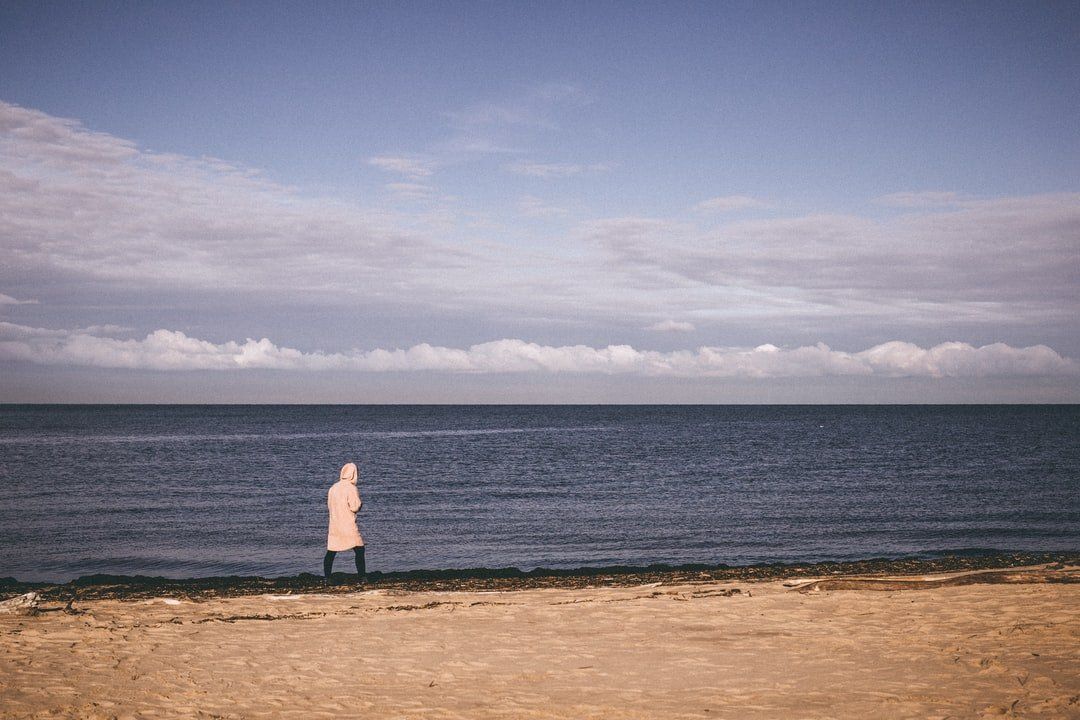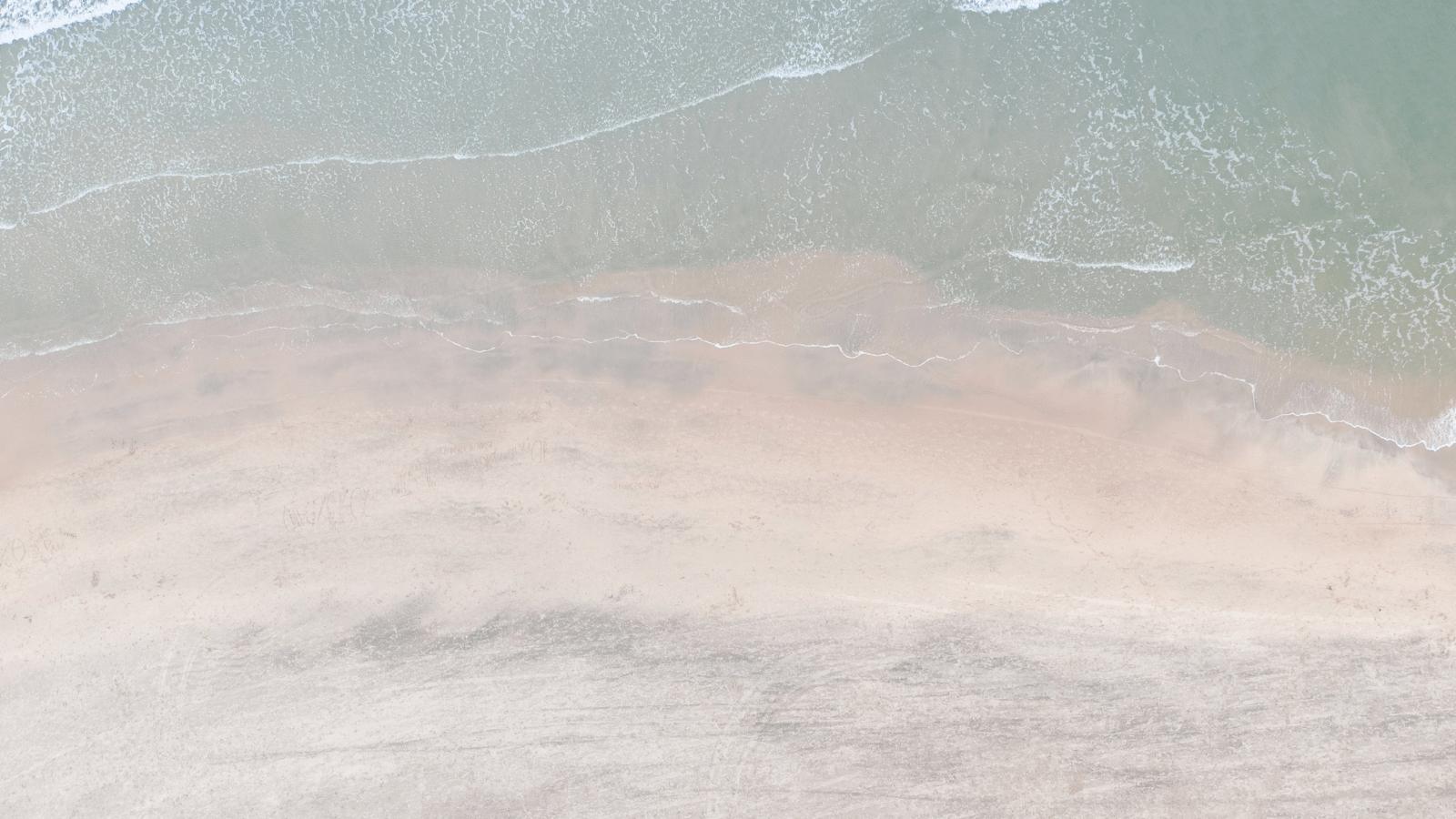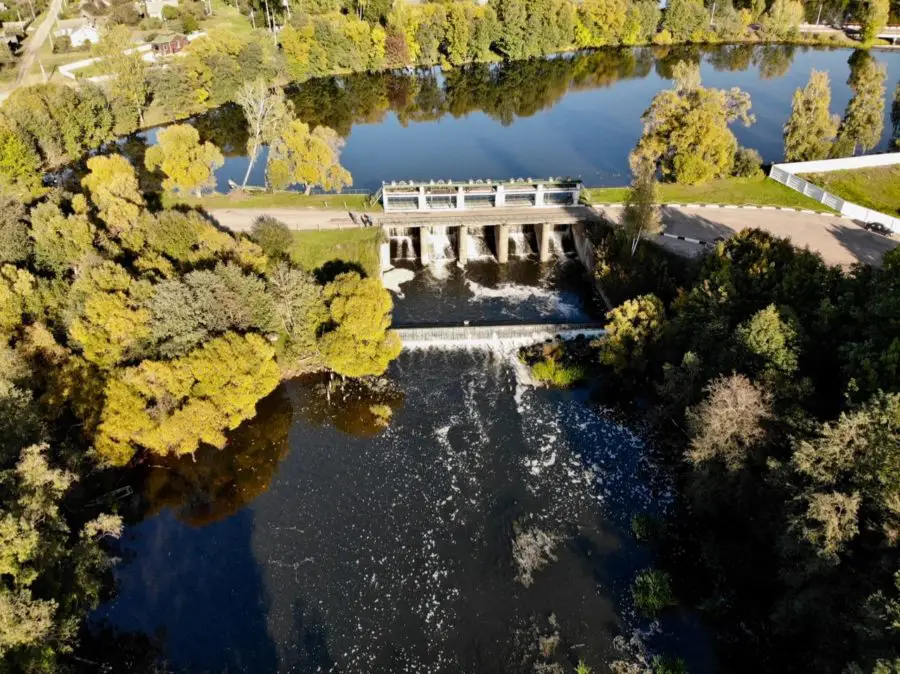
List of priority dams for removal across the Baltic Sea region
In 2020 CCB started the development of a list of priority dams for removal across the Baltic Sea region with partners from Estonia, Latvia, Lithuania, Poland, Russia and Belarus.
CCB finalized the list in 2021, with description of priority Baltic river migration barriers for mitigation actions in the final report “River Barriers to remove or mitigate in the Baltic Sea Region”. The report on priority dams in BSR for mitigation actions was presented to HELCOM bodies. More comprehensive national reports were produced for Estonia, Latvia and Belarus.

Advocacy for the protection of the Baltic Sea harbour porpoise
The CCB goal to reduce harbour porpoise bycatch and raise awareness on porpoise has resulted in significantly increased activity from the Commission as well as the Member states in Baltfish and in HELCOM, and in this process resulted in a delegated act containing some measures for reduction of harbour porpoise bycatch in the Baltic Proper being adopted by the European Commission in December 2021.
During 2020-21, the most important work within HELCOM was the update of the Baltic Sea Action Plan. CCB worked to include several harbour porpoise related actions into the new plan, especially on mitigating bycatch and underwater noise, and there are several actions relevant for harbour porpoise in the new BSAP which was adopted in October 2021.
CCB was part of writing a scientific paper on harbour porpoise conservation in European waters, which was published in Frontiers in Marine Science in February 2021. A questionnaire was also spread to gain information on how well-recognised the harbour porpoise is among European citizens. The results of this questionnaire was published in the UK journal Mammal News.
Moreover, in 2021 we initiated a collaboration with two Swedish adventurers starting a journey rowing across the Atlantic in December 2021 to raise awareness on the Baltic harbour porpoise. In summer 2021 a webinar was arranged together with the adventurers in conjunction to the Swedish political event Almedalsveckan.
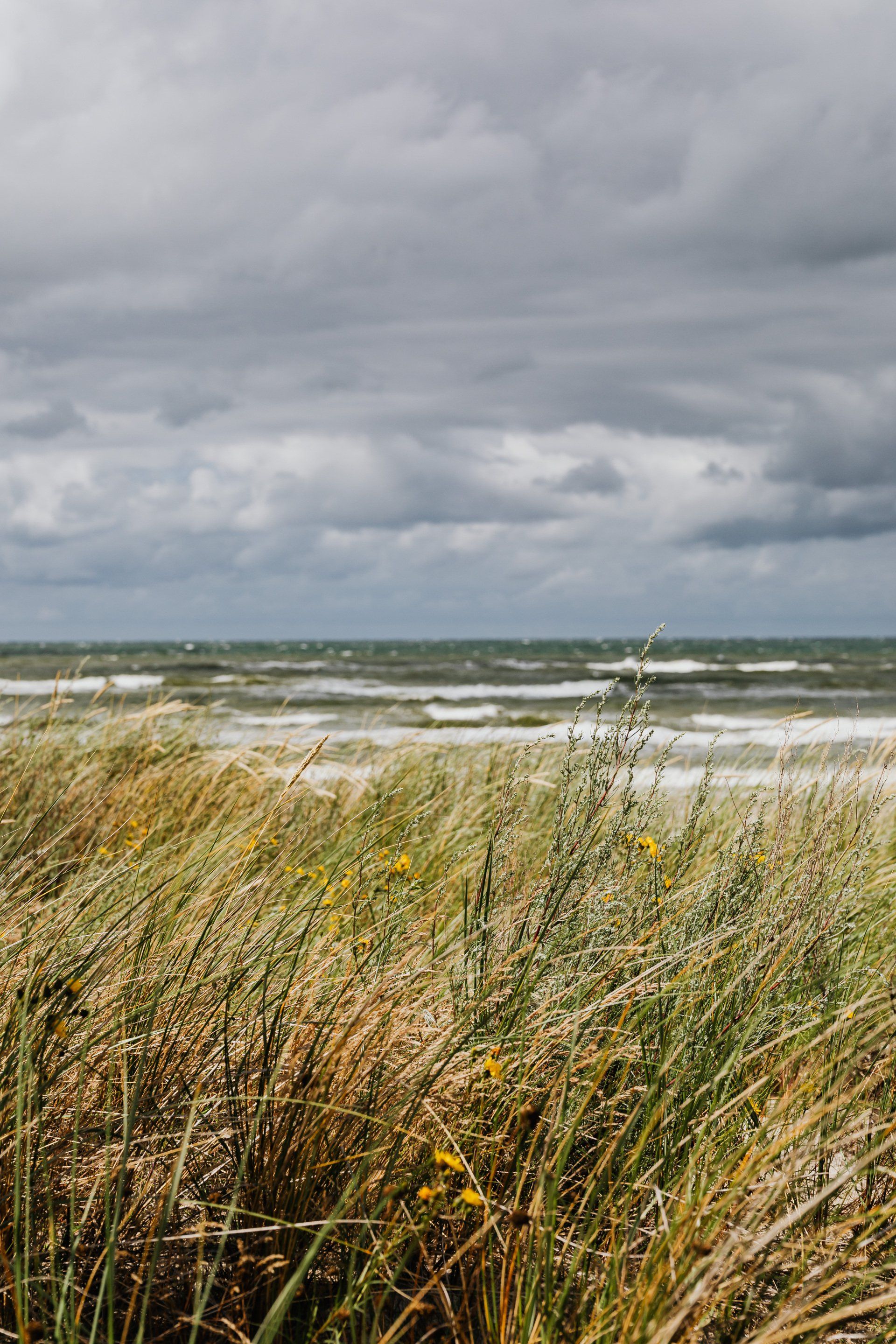
Management of habitats and species in MPAs
An inventory of transboundary Marine Protected Areas (MPAs) and areas protected unilaterally was completed in 2021 and a report was compiled. The advocacy work using the findings of this document is being prepared within the Working Area BIO of CCB to take place during 2022, for example through the HELCOM State and Conservation group as well as the HELCOM TG MPA.
In 2020 and 2021 the CCB briefs for management of habitats and species in MPAs were also further disseminated through for example HELCOM groups. 400 printed copies were distributed by CCB MOs in different Baltic Sea countries.
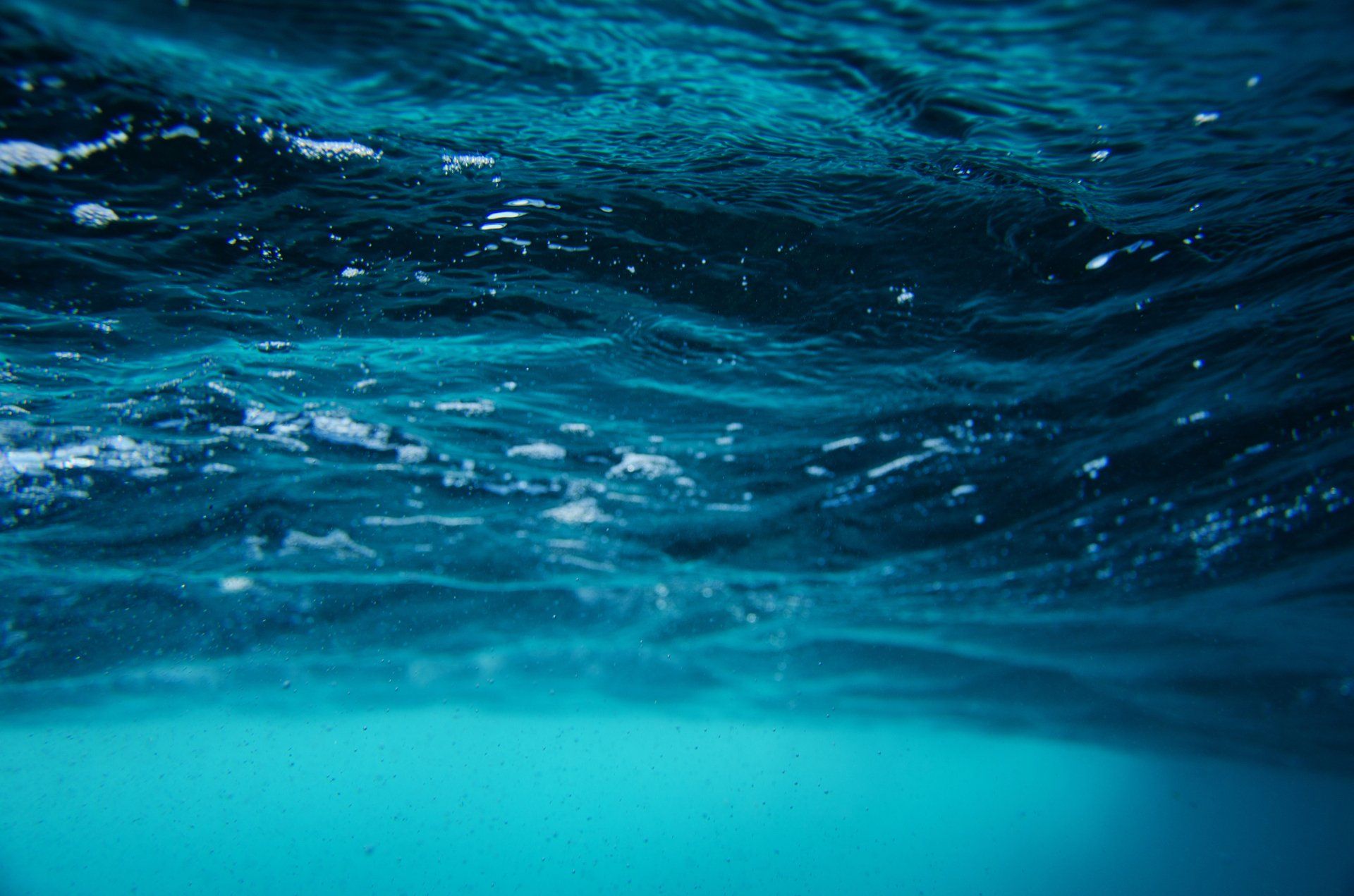
Underwater noise
In 2021, the NGO Workshop “Why we should make more noise about underwater noise” was realised with the input of four experts on the topic of underwater noise and 27 participants from NGOs out of 8 countries. The exchange was perceived as very useful and a good basis for further (joint) work on the topic of underwater noise.
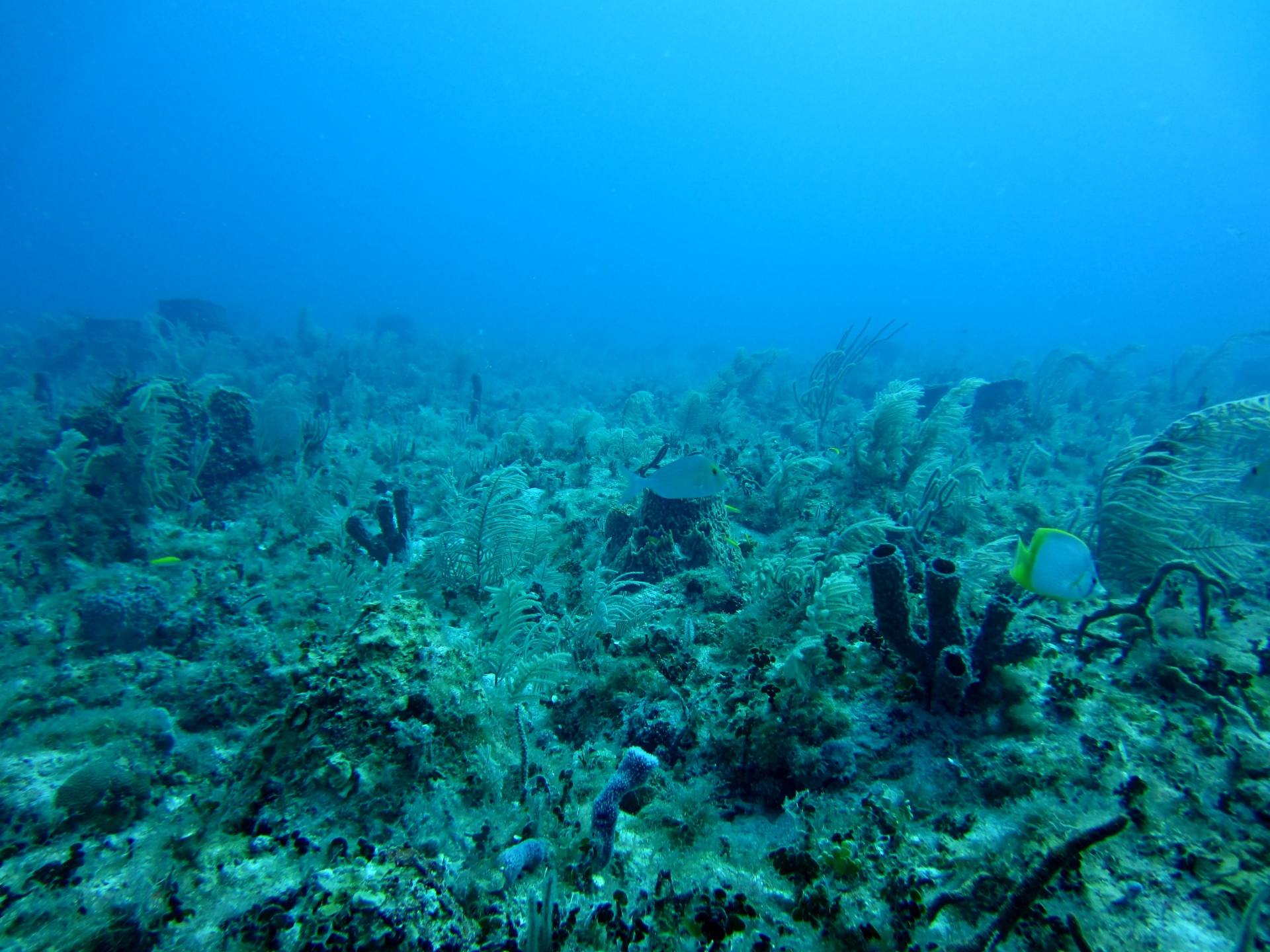
Review of available data on the unique Słupsk furrow nature values and compilation of information and material for advocacy work
The compilation of data has started by with the review of published data on the habitat and biocenosis of the Slupsk Furrow. A series of interviews with the research scientists of the topic were conducted. Summarising the results some conclusions can be drawn:
- All data of research that localised directly in the Słupsk Furrow area confirmed its exceptional ecological value.
- Habitat and biogenesis of the Słupsk Furrow needs to be systematically and possibly detailed monitored.
- Actual deficiency of the results the latest research in the Słupsk Furrow shows how undetermined is present state of environment there.
- It is necessary to focus general attention on problem of total lack of any protection of this exceptionally valuable bottom part of the Baltic Sea.
Informational materials are available at the project website.

Water birds in the Odra estuary
Three counts of waterbirds in the Odra estuary started in 2020 by West Pomeranian Nature Society, CCB Member Organization.
The study covered the most important areas where waterbirds congregate during the non-breeding period. These areas are located mainly along the Odra River valley and in the Odra estuary, which includes the Szczecin Lagoon, the Kamień Lagoon and Lake Dąbie. The monitoring also covered Lake Miedwie and the fishponds in Dzwonowo – these two sites lie beyond the Odra valley and the estuary. The study site covered an area of around 1,200 km² and about 420 km of river banks and waterbody shores. Counts included Grebes (Podicipediformes), Ducks, Geese and Swans (Anseriformes) and Gruiformes.
Data of the bird counts was analysed and reported, specifying the percentage of flyway population that is wintering in the area. Identification of the most important species was done and the results were compiled in the report: "Report on the counting of water birds in 2020 in Western Pomerania, Poland".
In 2021 this activity has continued within the project on Development of a joint Polish-German system of cross-border ornithological monitoring in the area of the Odra estuary and in the border area west of Szczecin (2021-2022), co-funded by ERDF and Pomerania Euroregion.
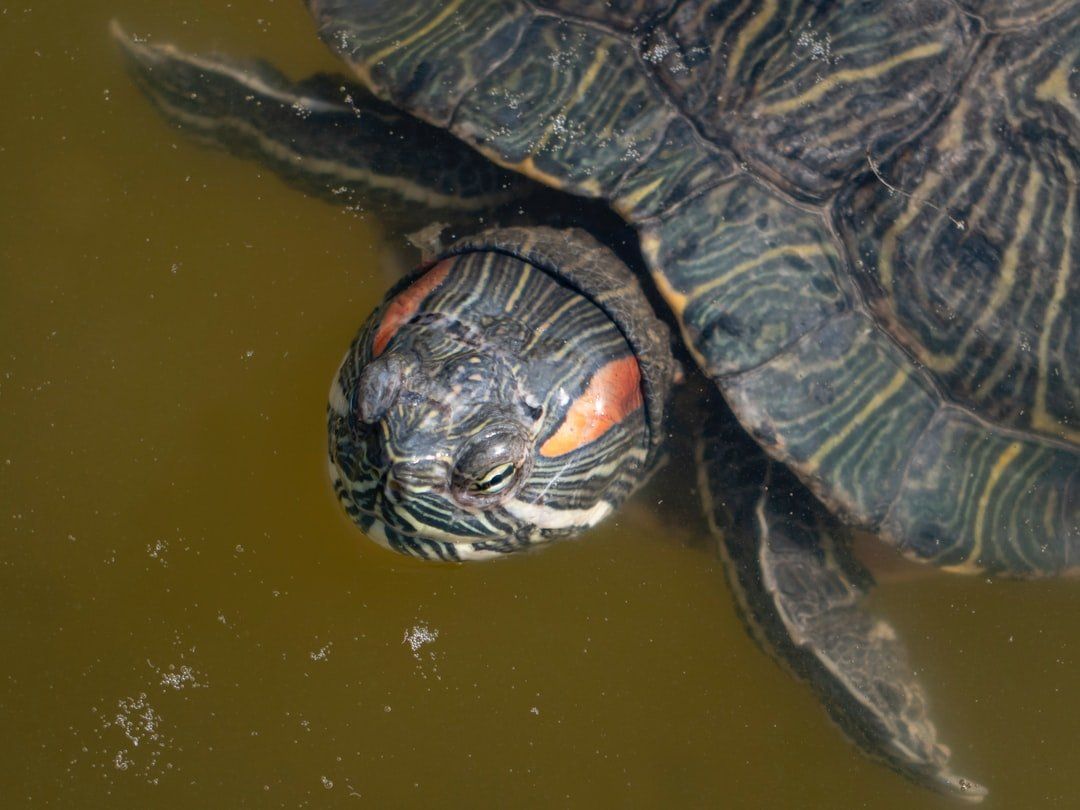
Dissemination on Invasive Alien Species
A Manual on combating IAS by anglers and hunters was prepared and published with separate info cards on round goby, stone moroko, racoon dog, racoon, American mink, Prussian carp, spinycheek crayfish, signal crayfish, Chinese sleeper, pond slider.
Ecosystem based fisheries management (FISH)

There is still no set plan for cod recovery as CCB had hoped for. Building on what is now several years advocating for a total stop for all cod fishing, CCB has, with strong support from members continued this during 2021 e.g. creating and presenting NGOs proposals for TACs and PR linked to this. CCB also has advocated for further long term measures, such as permanent and complete closure of the only known spawning areas (Bornholm deep) of the eastern stock and a shift towards a new marine management system. Active participation in BSAC, Baltfish, HELCOM has all followed the same line.
In 2021, CCB has turned more focus to deliver inputs to the Biodiversity strategy deliverables such as the Action Plan for fisheries and a new Restoration Law that both have direct implications for cod and long term efforts on wider marine management.
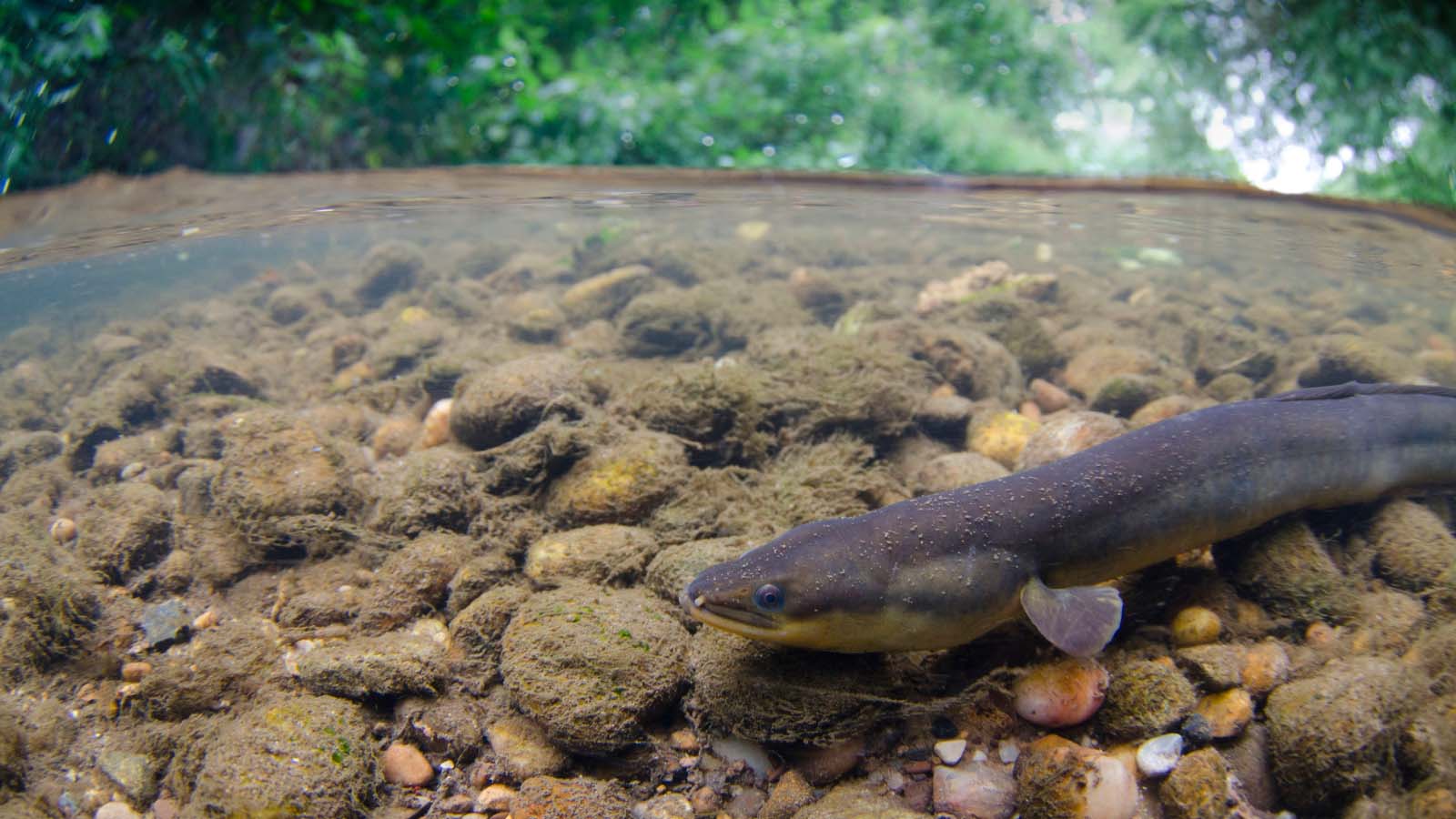
Campaign for reducing all human induced mortality on eel
All eel related activities are aimed at reducing the eel mortality and increase out-migrating spawners. CCB ambition to at least achieve a ban on recreational fishing in the Baltic region as a measure in the updated BSAP failed, supported only by a few states (SE, DE). The ICES advice in November 2021 and consequent steps taken by the DG Mare since then indicates a potential opening up for further measures.
CCB has increased coordination activities surrounding eel management mainly together with the Fisheries Secretariat, but also including members well outside the Baltic region (Med, Uk). CCB is part of the core group and takes part in the regular coordination calls.
CCBs expertise has helped national NGOs to address eel domestically with special focus on Germany and Denmark, but also in Spain and Netherlands. In both cases, it has resulted in actions and support for further measures, likely also the acceptance for the Commission proposal in December Council 2021.
Moreover, we joined the campaign #PowerToTheEel to get signature support for stronger protection for eels in 2021.

In 2020, CCB started to develop and implement a project to increase capacity and knowledge about EBM in the network. CCB MOs but also other NGOs that were invited to the discussions in 2020-2021 (DUH, OurFish, Fisheries Secretariat) have a more aligned approach and thinking as a result.
A common understanding is still far away, among scientists and managers alike, but among NGOs the shared understanding is becoming more clear.
Moreover, CCB has as Chair of the BSAC EBM working group also been able to reach an agreement with fishermen on what EBM means and needs. This is clearly visible in the BSAC “white paper on CFP”.
We also requested to HELCOM countries to start a process to agree on a common understanding on EBM, and how it should be implemented. This was indeed accepted and developed into a stakeholder conference in March 2021.
CCB was responsible for organising and chairing one of the three sessions and the event resulted in solid recommendations for next steps. As an outcome, EBM is fully present in the new Baltic Sea Action Plan (BSAP) and several actions suggested by CCB on practical steps, such as open cooperation between fisheries and environmental managers (e.g. via Baltfish-HELCOM) are now part of the updated BSAP.
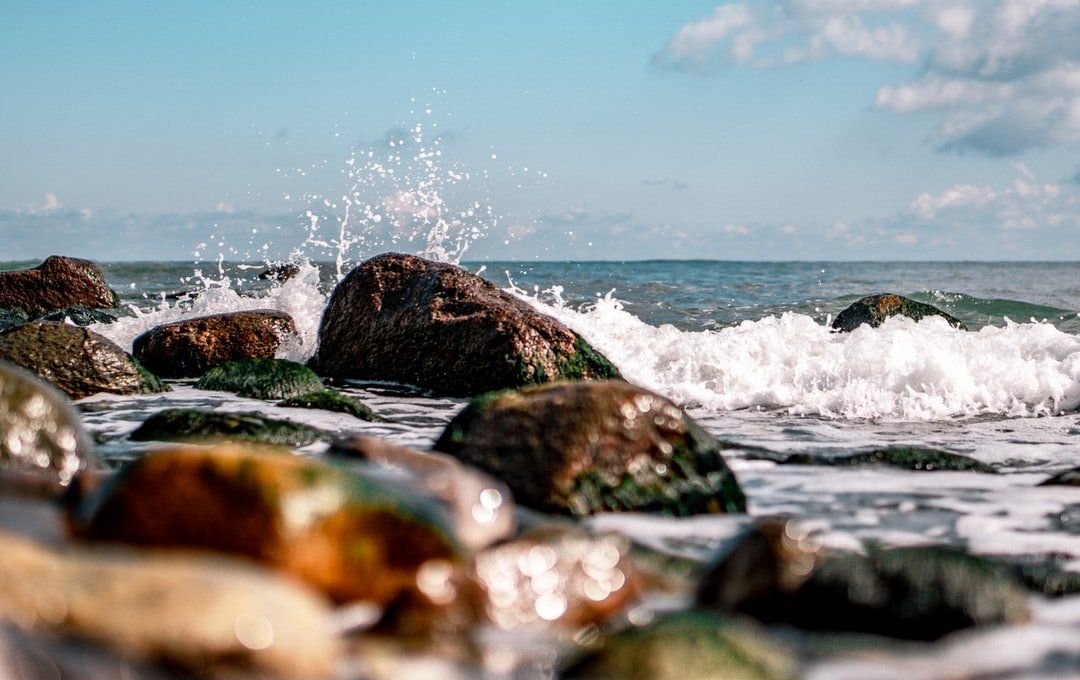
Active cooperation with other NGOs and NGO networks on MSFD and CFP implementation, including anglers
In 2020 and continued in 2021, efforts have been made to create concrete proposals for the update of the HELCOM Baltic Sea Action Plan (BSAP) as a means to support and facilitate better implementation of MSFD and the CFP.
CCB has engaged heavily in the MSFD refit process: coordinating NGOs views, organised internal and external meetings, mainly with the EU Commission staff. We have participated in targeted consultation sessions and coordinated NGOs responses to the open consultation in November 2021.
This work has not only been in the CCB network but covered all the main EU NGOs active on MSFD issues. CCB staff was also an invited speaker at the large stakeholder event "Future of Our Seas" in December 2021.
Implementing Maritime & Coastal Spatial Planning (COAST)
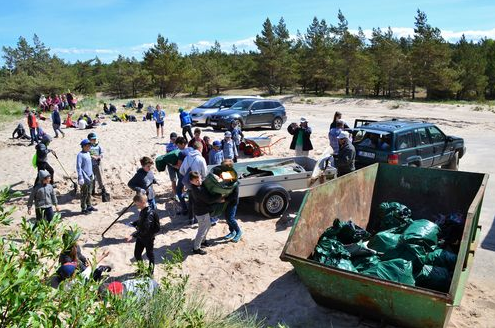
Two CCB Member Organizations - Latvian Green Movement and Green Planet (Russia) - have continued CoastWATCH observations in 2021, after translating and adapting respective manual to national languages and conditions and resulted in:
- 8 teams engaged: 64 participants, 2 schools, more than 50 km Latvian sea coast;
- 20 teams: more than 500 people, 15 coastline areas engaged in coast and marine litter monitoring in Kaliningrad, Russia; 3774 students participated in eco-classes on marine mammals protection; 162 people participated in 15 clean-up events.
The “Save Latvian Dunes” campaign was maintained in 2020-2021 and coupled with Nature Accessibility principles (NaaC). NaaC flags were raised again for the third season on three beaches in North Kurzeme, Latvia (Roja main beach, Mērsrags lighthouse beach and Ķesterciems beach), which fully meet the criteria of nature accessibility and can be used by everyone - from people in wheelchairs to families with young children.
Since 2019 the work on marine and other coastal litter has been focused on coastal cleanup events, including its gamification, using e.g. the Clean Games concept that resulted in CCB’s involvement in 2021 Baltic Clean Games Cup – a litter clean-up tournament and public environmental awareness campaign that covered 6 cities in 8 countries, engaging 1603 participants and gathering 23 tons on garbage. CCB MOs and partners from Latvia, Lithuania, Belarus and Russia took part in the event.
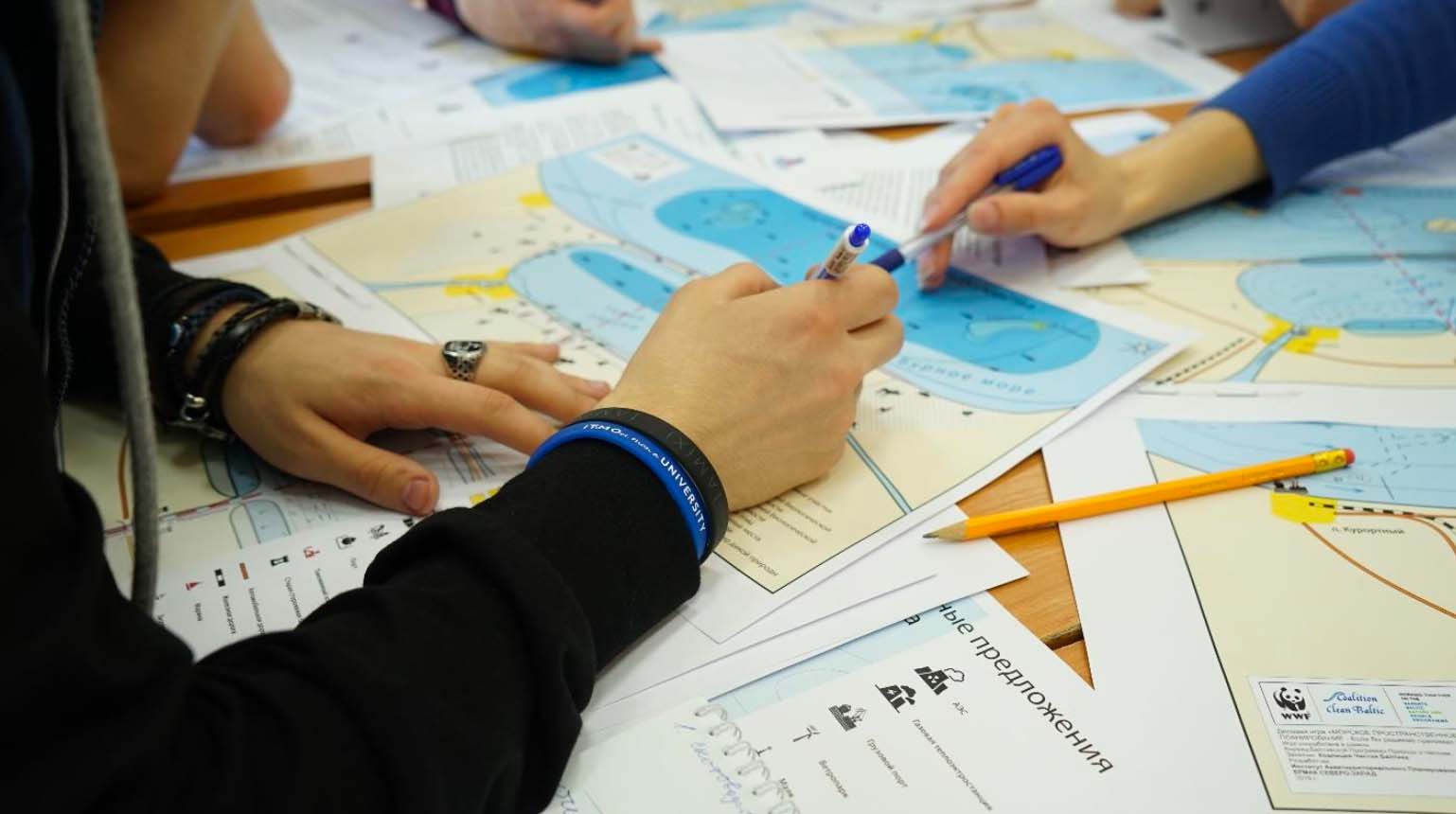
MSP games are performed in several BSR countries
MSP games were postponed to 2022-2024 due to COVID restrictions. However, CCB promoted the participation in different MSP events throughout 2021:
- MSP Roundtable in Kaliningrad
- 22nd Meeting of HELCOM-VASAB MSP Working Group
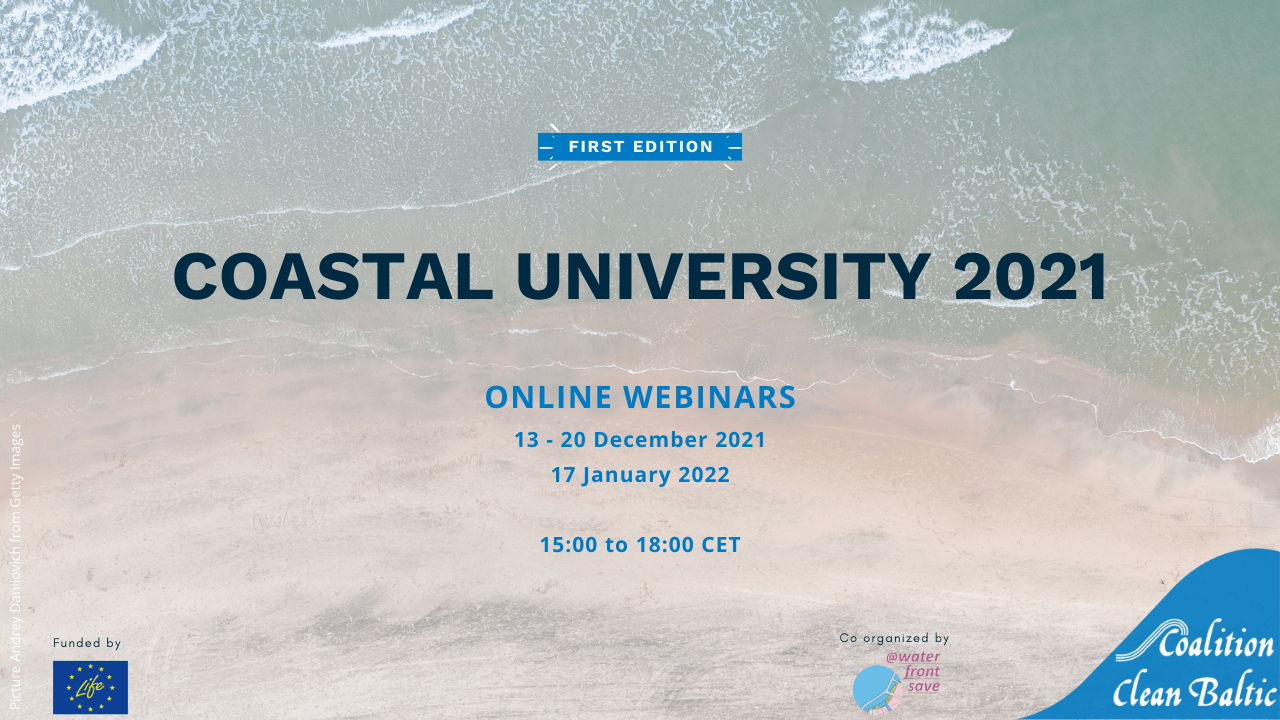
As the work on CoastWATCH has only started in late 2020 and activities were seriously hampered by COVID-19 restrictions, the map of areas in need of protection has not be compiled. This activity will be further addressed and developed within CCB Multiannual Plan of Actions for 2022-2024.
However, the workshop on broader stakeholders involvement to share the knowledge on efficient ways of coastal strip protection has been implemented in a form of Coastal University – a novel activity that has emerged as an initiative of one of the "Our Common Baltic" (OCB) course participants and was mostly implemented in 2021. It has gained a lot of attention in terms of number of participants and quality of speakers.
